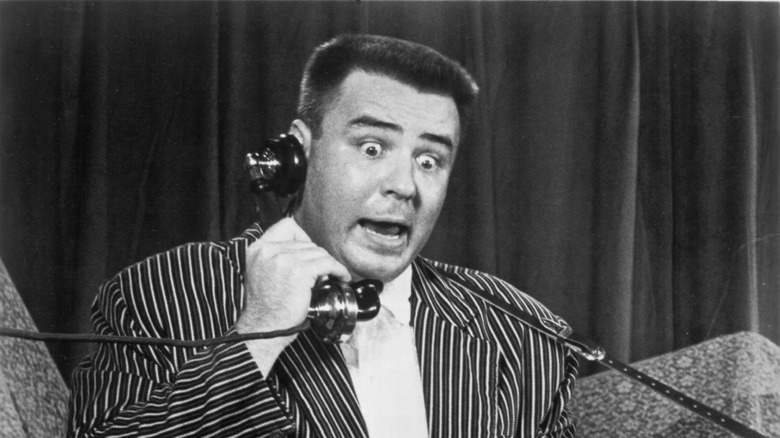Don McLean Reveals The True Meaning Of American Pie And Puts Decades Of Theories To Rest
Over the course of the 70 or so years since rock n' roll has been a thing, more than one song has spurned listeners to scratch their heads over the seemingly inscrutable lyrics within. For example, for 50 years, listeners have been puzzled over the lyrics to the Eagles' "Hotel California," with its vague and poetic references to the "masters' chambers" and "you can check out any time you like, but you can never leave." (Even though writer Don Henley has revealed that the song is about excess, and in particular, the excesses and hedonism of Southern California in the song's day, according to ABC News.)
Another song from roughly the same era has also left fans scratching their heads for 50 years. Don McLean's "American Pie" is filled to the brim with poetic imagery referencing the Bible and the devil, various historical events of the day (maybe, depending on interpretation), and possibly various people. It all is — or was, anyway — a bit of an inscrutable mess, but it also came with an easily-singable chorus and a catchy hook, and despite the morass that is the song's lyrics, it was and remains a classic.
In July 2022, writer Don McLean put 50 years of speculation to an end when he revealed, once and for all, what the song is about.
'The Day The Music Died'
For five decades, the consensus in the rock industry has been that "American Pie" is probably — at least partially — about a tragic incident in 1959 in which American rock 'n' roll musicians Buddy Holly, Ritchie Valens, and "The Big Bopper" J.P. Richardson (pictured above) were killed in a plane crash in Iowa, as The Des Moines Register reports. The song contains the hook, "the day the music died," and indeed, that's what the tragic death of those three musicians has come to be known as. Further still, one lyric reads, "February made me shiver," and in fact, the fatal accident took place in February.
Of course, other lyrics seemingly have nothing to do with the crash. "I met a girl who sang the blues," for example — no women died in that crash. Another lyric, "I was a lonely teenage broncin' buck, with a pink carnation and a pickup truck," has seemingly nothing to do with any of the men who died that day. And the lyric "moss grows fat on a rolling stone" is a tortured retelling of an old saying that's been around for centuries.
Fortunately (or unfortunately, if you prefer your mysteries to remain, well, mysterious), McLean cleared up most of the ambiguity in the lyrics, although he waited five decades to do so.
Yes, It Is (Mostly) About the Deaths of Holly, Richardson, and Valens
According to Don McLean himself, the song is, in fact, (mostly) about the plane crash that killed Buddy Holly, Ritchie Valens, and J.P. Richardson (via American Songwriter). "I wanted to write a big song about America, and when I fused the death of Buddy Holly with these ideas, that's when that song became what it was," McLean said.
Other lyrics, however, aren't about that tragic event. "Moss grows fat on a rolling stone," for example, references the fact that McLean was, at one time, battling a weight problem. "A lonely teenage broncin' buck" is also about McLean himself, a reference to the fact that he had bronchial asthma. "And while Lenin read a book of Marx" is about Vladimir Lenin and John Lennon, who was "radicalized by Marx," as McLean describes it.
Other lyrics will remain ambiguous by design, however. For example, McLean didn't reveal who "the Jester" is. He notes that, over the decades, Bob Dylan and Elvis Presley have both come up in the discussion, but he says it's neither. "I certainly would have mentioned Dylan's name if I had meant to mention him. I would have said Bob or something else, but I didn't 'cause it ain't him," McLean said, though he didn't divulge who the lyric was really about.


